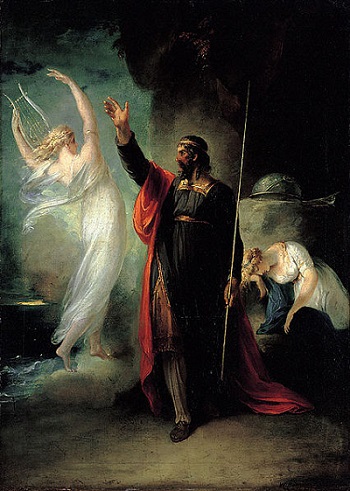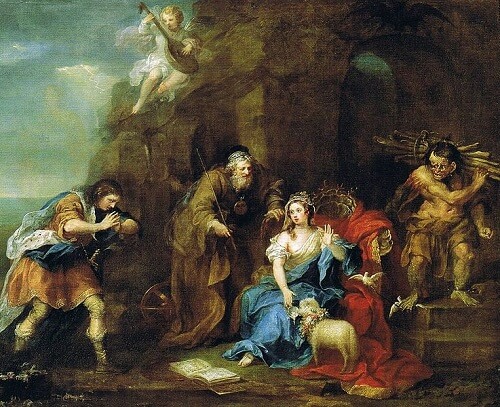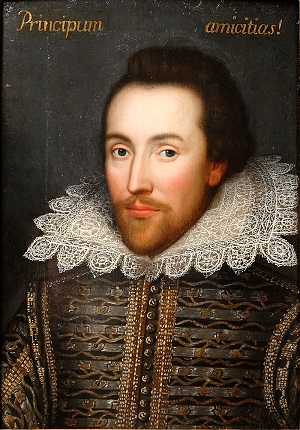Activity 1: Recite the Story Information
- Before and after reading or listening to the story, recite aloud the title and author of the play.
Activity 2: Narrate the Story
- After reading or listening to the story, narrate the events aloud in your own words.
Activity 3: See the Playwright and Poet William Shakespeare
- Study the controversial 'Cobbe portrait' below, which may be a real-life portrait of Shakespeare.
- The portrait contains the Latin phrase 'Principum amicitias!' which means 'The alliances of princes!'
Activity 4: Map the Play
- The play, 'The Tempest,' mentions the Italian cities of Milan and Naples.
- Find Italy on the map of Europe.
- Point to the location of Italy on the map of the world.
- Find Milan and Naples on the map of Italy.
Activity 5: Can You Find It?
During the week, zoom in to study the painting, 'Miranda - The Tempest,' by John William Waterhouse. Soak in the stormy sea and the play's island setting, and find the following:
- Miranda
- Swamped Ship
- Sail
- Mast
- Pouch
- Cliffs
Activity 6: Cast the Characters

- Serve as the casting director and audition actors and actresses for parts in your play.
- Reuse the same laminated actors and actresses you employed for 'A Midsummer's Night Dream.'
- Color, cut out, laminate, and attach the names of the characters found on page 30 of 'Third Grade Shakespeare Theater Pages.'
- Using what you know from reading the story, cast each character by Velcroing a label to the box under the actor or actress you feel is best suited for the role.
Activity 7: Create a Character Map

- Cut out the relationship connectors on page 31 of 'Third Grade Shakespeare Theater Pages.'
- Using what you know from reading the story, place the relationship connectors between the characters to show their relationships.
 Beautiful Stories from Shakespeare I
Stories from Shakespeare I
Beautiful Stories from Shakespeare I
Stories from Shakespeare I



 Beautiful Stories from Shakespeare I
Stories from Shakespeare I
Beautiful Stories from Shakespeare I
Stories from Shakespeare I







